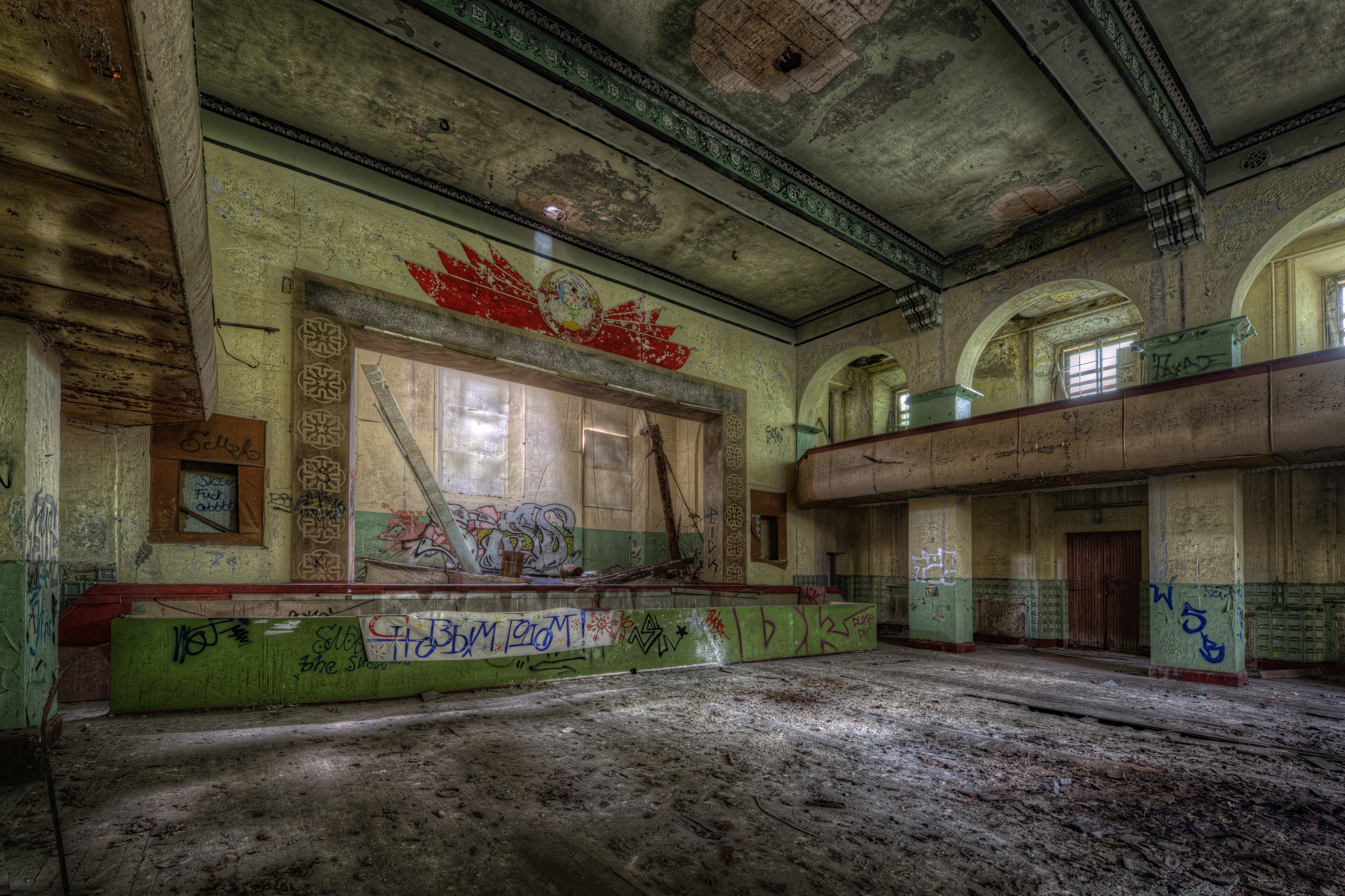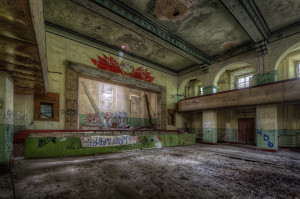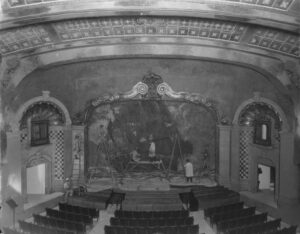The Revolution Will Not Be Televised
Causes of Theater’s Irrelevance, and What to Do About It
BY JOHN STEPPLING
In the 1960s, the West German government, under Adenauer, forged a curious ideologically schizoid relationship with young German filmmakers. The Oberhausen Manifesto sort of provided a funding frame and impetus for young directors, and a generation of filmmakers grew out of this, including Fassbinder, Schlöndorff, Straub, Wenders, and Herzog.
In 1966, the patrician Yale Law School graduate John Lindsay was elected mayor of New York. He rapidly solved the city’s transportation strike (by essentially granting the strikers’ demands) and went to work transforming urban life in America’s largest city. He did this, in part, by throwing money at the arts.
Now I mention these two developments because one never has a vibrant and relevant cultural community without either state funding, or a collective political consensus of resistance. In the U.S. today, in an era of de-territorialized power, an economy largely based on attention deficits, a surveillance state, and a compliant and quisling media, the arts have been largely reduced to either a Wall Street investment opportunity (and credibility marker, if fine arts), or a product for giant telecom corporations and studios (if film), or as adjunct cottage industries for academia (if we mean poetry and fiction MFA programs and the like). Theater is a sort of embarrassing third wheel, a pimple faced uncle with halitosis and untrimmed nose hair who keeps hanging around, and just won’t take the hint. Theater plays out where the buses have stopped running.
Now, if one is obedient enough, and socially adept, and from the correct class, then one might become one of the handful of playwrights in the U.S. who actually make a living from their art . . . er . . . craft . . . er . . .whatever. Radical work does not get produced on Broadway or make it to Lincoln Center. There is a small group of performance companies left that signify the “avant garde” (The Wooster Group, being the poster child for this) without really being avant garde, and there is a handful of grants-generating theater companies (whose sole purpose is, really, to simply generate grant funding, and often this overlaps with Academia and the white, liberal paternalistic stance toward “multiculturalism”), and there are even one or two regional writers who manage to subsist. But there is no political vision of resistance.
Now, part of this can be laid at the feet of post-modernist theory, in the sense that modernism was seen as well past its sell-by date, and ergo the arts in general were falling into various camps of ineffectuality. Traditionally, the rise of the idea of the avant garde was in opposition to the status quo. At whatever point one chooses to see the beginnings of a cultural avant garde, there is no question that throughout the first half of the 20th century, the role of artists working in all mediums, was to critique the conformist and often totalitarian values of the state, of governments.
Which brings us to “today”. The cultural landscape is relatively reactionary on the whole. So far to the right have the mainstream political parties lurched over the last 30 years that today, Richard Nixon would be decried as a cheese-eating socialist. Now, I hasten to add that for the most part electoral politics are all just bad theater, but as a form of cultural symbol, I suppose such observations have interest. The point is, if you were to examine the coming main stage seasons at any large regional theatre (The Guthrie, Seattle Rep., The Goodman, La Jolla Playhouse, Oregon Shakes, et al) I would defy anyone to see much in the way of excitement, or, more to the point, work of genuine political destabilizing, anything that feels dangerous in any way. No, the role of institutions of any kind is to self-perpetuate. To survive. And, survival means making a profit.
As a thought experiment, if one were to overhear the proverbial water cooler dialogue at the office tomorrow morning, does one imagine the discussion in play would be from cinema or TV, or from theater? Yes, this is a rhetorical question. So much of public discourse is now enclosed within the confines of film culture, and TV product, that one cannot discuss Ukraine fascism, or U.S. torture or war crimes without recourse to Breaking Bad similes or metaphors. Or Mad Men, or Hunger Games, or Gravity, or Wes Anderson. Now this speaks, additionally, to the infantilizing of U.S. society over-all, but the point is that theater is now a museum art form, it is not a living part of organic community. And yes, of course there are honorable small theaters that try to do good work, but that is very hard, to survive as an island of artistic radicalism in a sea of neo-liberal obedience. But, this brings us back to questions of economics.
New York’s Mayor Lindsay gave money to theater artists during the “Fun City” years, and off-off Broadway was one of the results. Maria Irene Fornes, Sam Shepard, Murray Mednick, Ronnie Tavel, Cafe Cino, LaMama, etc. etc. etc. This marked the last collective radical experimental theater movement of any sort in the U.S.
When I look back on the Padua Hills Festival in Claremont, California during the 1970s and 1980s, I see the post-script to off-off Broadway — an honorable and even important post-script. It’s not an accident that funding was hard to come by despite a decade-long track record. The arts funders do not tolerate artists who want to bite the hand that feeds them, even though artists are supposed to cause offense, to anger the bourgeoisie, and to disrupt the status quo.
The New German Cinema was allowed to do what it wanted. Fassbinder could make radical sexually defiant political masterpieces with money from the government. Now, in the U.S. today, there is almost no money forthcoming from the government for artists (and do not try to blame Republicans for this, because Democrats are exactly as bad). A bit of chump change trickles down from the master’s table and is hurriedly collected by the grubby hands of those grants-generating theater companies (if we limit this discussion to theater, for now). But this is not the only reason for the deadness of American theater. There is an increasingly depressing “hobby” culture infecting young (and not so young) playwrights and actors and directors. One can’t quit one’s day job, after all. Because mostly doing small theatre means losing money. Its like artistic self-harm, cultural Lesch-Nyhan syndrome, or some sort of stage Munchausens.
Now, it seems to me there are three issues interconnected. One, and most significant, is the growing surveillance state, the post-modern police state that is 21st century America. It is more Kafka than Orwell, but either way, it furthers the reification of social relations, and embedded within this reality is the final total destruction of public education.
This brings up the second issue, which is audience. There is no longer an audience culturally educated enough to sit through say, a six hour Heiner Müller play — but really, it is more about the loss of mimetic depth (and this becomes too philosophical for the purposes of this article), the inability of audiences to really listen or look. A sub-effect of this second issue is that the ascension of irony has coincided with the rise of marketing, of a branded culture of hyper-realism. The new “snark” culture is in a zero sum game with sincerity. I suspect the last sincere artists were Mark Rothko and Jackson Pollock, and the Pinter and Beckett generation of theater writers, with Sarah Kane as a sort of coda. This is not to say there are not sincere and even profound writers working today, because obviously there are, but that they are atomized, isolated, and often largely invisible.
The third factor is perhaps really part of the first, and that is economics. To produce a play decently, in Los Angeles today, in a theater of 99-seats or less, is about a $40,000 investment. That’s a low-ball figure. Now, you can expect to get back, if the show “does well” about 15% of the investment. Of course, alternatives exist; one-night hobby shows, under rehearsed, for mostly your friends, or find really, really cheap rental space in Blythe or Colton or somewhere, and put on a play in a former meat packing warehouse. This is all possible, but it cannot be done alone. I suspect, strictly speaking, it “can” be done alone, if one is committed enough, but along that path lies a great cost. Artaud said it, slavery or madness.
In Poland, during the era of Kantor’s company in Krakow, the mid-1980s, one of the things that was so striking when seeing that group was the deep investment of everyone involved. Company members weren’t running off to talk to their agent about a chance to write the new CSI:Omaha freelance episode, or to take up the staff gig for Nickelodeon’s new kid show. I know this because I spent 13- years working in Hollywood and realized at some point that without a deeper level of prostration, I was doomed. Others have lasted far shorter periods and I admire them for realizing what it took me a decade to grasp.
The U.S. government will not anytime soon fund the arts on any scale that matters. Whatever Democratic ghoul is nominated, or Republican sociopath, the results are the same. The U.S. spends $4 billion a day on defense. A day! And actually its closer to five. The NSA listens in on everything, compiles it, and hides it in that vast billion dollar refrigerator in the Utah desert. And the U.S. continues to try to overthrow foreign governments it doesn’t like. The U.S. is basically a neo-fascist state, now. So, no, don’t expect much funding for your new play.
The answer is not one-night stands. Sexual one-night stands are fun, too. I don’t know if I can really stretch this metaphor, but mounting semi-rehearsed skits in backyards or bars is like getting genital warts from that guy or girl who looked better at closing time: playwright as genital-wart sufferer.
For theater requires, and in fact is predicated upon, a space. And that space must have the capacity for ritual learning. Theater is ceremonial, in the end. It is a civic ceremony. It is not entertainment. It is for the most part the opposite of whatever they told you at the University MFA program. Think the opposite and you will be closer to the truth. I read someone recently say the playwright’s first job is to not bore the audience. No, actually the first job of the theater artist might well be to intentionally bore the audience. You think awakening from the dream is supposed to be fun? The first job of any artist is to be serious. Within that is the avoidance of manipulation, of pandering to be liked, of dancing like the organ grinder’s monkey, hoping for spare change.
Institutional theater is on a respirator, and probably your health insurance doesn’t cover it anyway. In Los Angeles, before I left, I had a small panel discussion as an answer to the Theatre Communications Group panels being held. I was surprised at the love being shown, or at least fondness, for TCG. But then I thought, Stockholm Syndrome. Until theater artists bite those hands that provide scraps, the leftovers, then the colonizing of artistic consciousness will continue. And I get it, believe me. Without an audience, without validation of some sort, you become the cultural version of a battered child. You accept becoming collaborator, because the alternative seems too bleak. And it is. For theater to recuperate its own history, the form of stage narrative, then the creation of an audience is the first step.
Alternative education, pedagogic resistance leads to aesthetic resistance, and aesthetic resistance may lead to both an awakening, to compassion, satori, and to political resistance. It will remind us to listen and look. But it means educational rigor. There is a slightly toxic vibe in today’s playwriting workshop culture; and that is workshop as self-help, or therapy. This is not about your problems. This project of reclaiming relevance for theater is not about the commodity you write. The cult of ownership, or authorship, is beyond the scope of this article, but rigor means close reading of texts, it means sacrifice, it means seriousness. If theater (or art) is not taken seriously, then you may as well take that staff job and stop complaining.
John Steppling is an American writer, currently living in Norway



